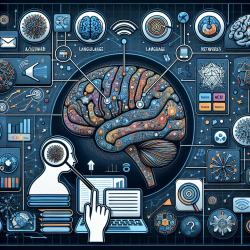Understanding the Multifactorial Nature of Poststroke Depression
Poststroke depression (PSD) is a prevalent condition affecting a significant number of stroke survivors. According to a study published in the International Journal of Environmental Research and Public Health, PSD impacts approximately 30.8% of stroke patients, highlighting the need for comprehensive screening and treatment strategies. This blog explores the biological, psychiatric, psychosocial, and cognitive factors associated with PSD, aiming to equip practitioners with insights to enhance their therapeutic approaches.
Key Findings from the Study
The research conducted at Houston Methodist Hospital evaluated 325 patients who had experienced either ischemic or hemorrhagic strokes. The study identified several factors significantly associated with increased odds of PSD:
- Comorbid Anxiety Disorder: Patients with a comorbid anxiety disorder were found to be 5.9 times more likely to develop PSD.
- History of Depression Treatment: Individuals with a history of depression treatment prior to stroke were 3 times more likely to experience PSD.
- Fatigue and Memory Impairment: Fatigue increased the likelihood of PSD by 2.8 times, while memory impairment increased it by 2.4 times.
- Younger Age at Stroke: Younger patients were more prone to PSD, suggesting age-related factors in emotional resilience and recovery.
Implications for Practitioners
The study underscores the multifactorial nature of PSD, emphasizing the importance of addressing both depression and comorbid anxiety in poststroke care. Practitioners should consider the following strategies to improve patient outcomes:
- Comprehensive Screening: Implement routine screening for both depression and anxiety in stroke survivors to identify those at risk early.
- Integrated Treatment Plans: Develop treatment plans that address both psychological and cognitive aspects, including interventions for fatigue and memory impairment.
- Age-Specific Interventions: Tailor interventions to the patient's age, considering the unique challenges faced by younger stroke survivors.
- Collaborative Care: Work closely with a multidisciplinary team, including neuropsychologists and speech-language pathologists, to provide holistic care.
Encouraging Further Research
While this study provides valuable insights, it also highlights areas for further exploration. Understanding the bidirectional relationship between PSD and anxiety, as well as the long-term effects of early interventions, can significantly enhance therapeutic outcomes. Practitioners are encouraged to engage in ongoing research and contribute to the evolving body of knowledge in this field.
To read the original research paper, please follow this link: Biological, Psychiatric, Psychosocial, and Cognitive Factors of Poststroke Depression.










